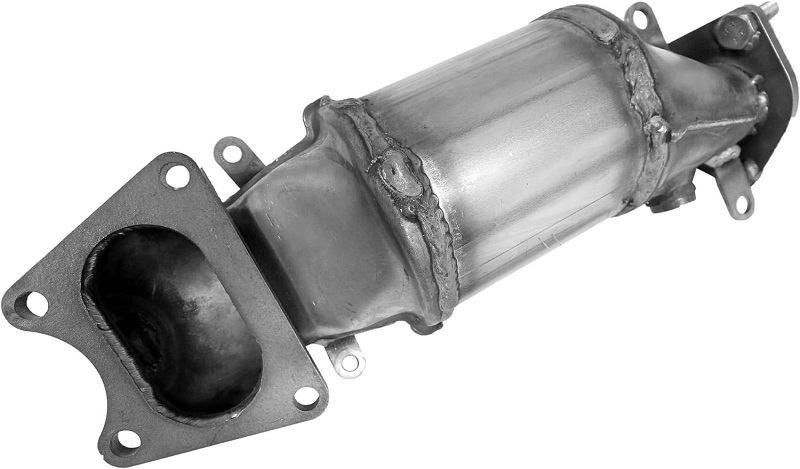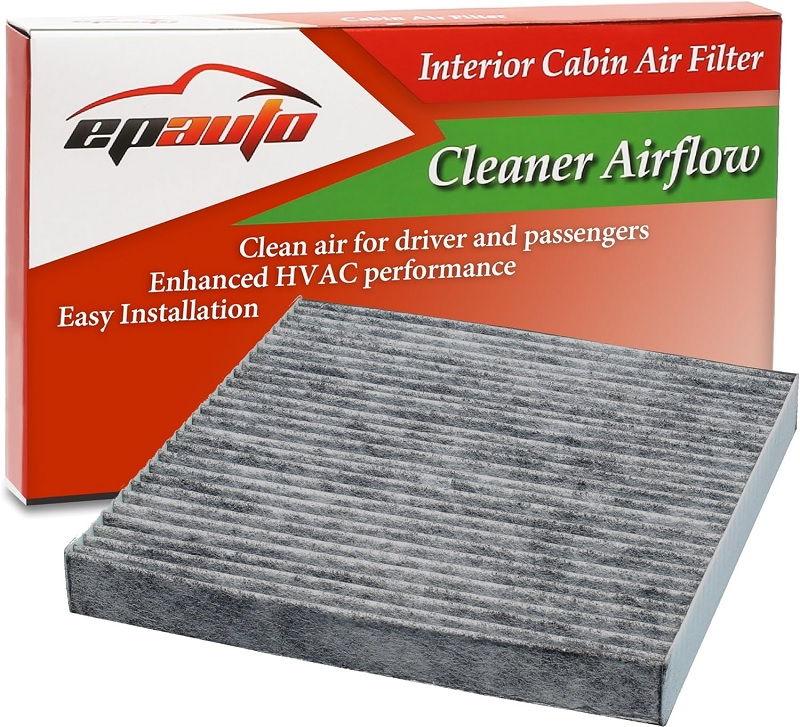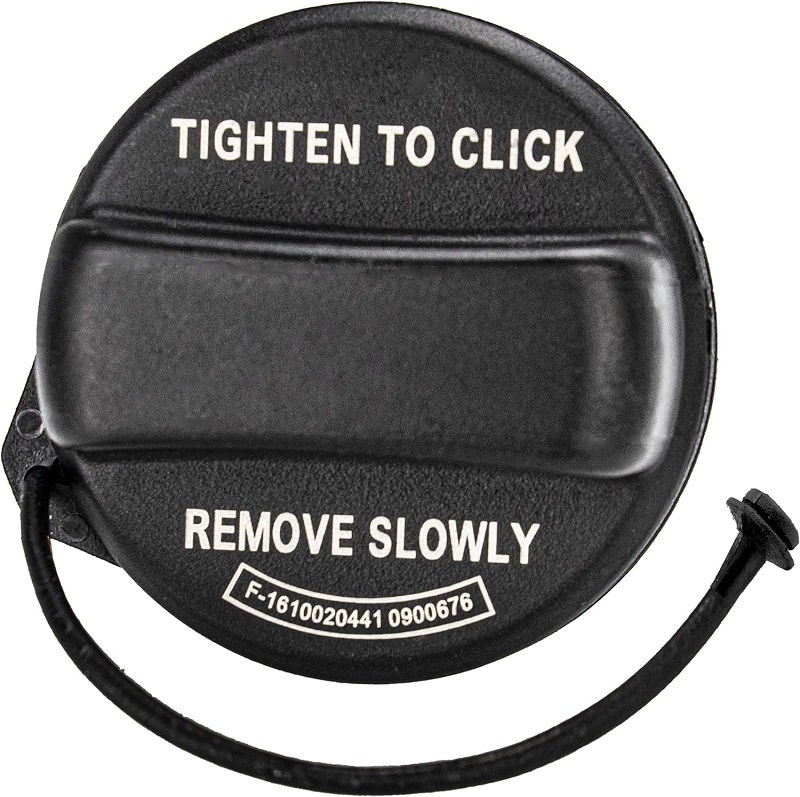This post contains affiliate links. This means I will make a commission at no extra cost to you should you click through and make a purchase [ “As an Amazon Associate, I earn from qualifying purchases.” ]. Read the full disclosure here.
2005 Honda Odyssey Catalytic Converter GuideMechanic.Com When it comes to keeping your 2005 Honda Odyssey running smoothly and efficiently, there are several components that play a crucial role.
One such component is the catalytic converter, which is responsible for reducing harmful emissions from your vehicle’s exhaust system.
In this comprehensive blog article, we will delve into the importance of maintaining and replacing the catalytic converter in your 2005 Honda Odyssey to ensure optimal performance and environmental friendliness.
Understanding Catalytic Converter Failure Causes
Check out this Walker Exhaust Ultra EPA 16450 Direct Fit Catalytic Converter

While the catalytic converter in your 2005 Honda Odyssey is designed to be durable and long-lasting, certain factors can contribute to its failure.
See Also: Honda Civic Thermostat
Understanding the potential causes of catalytic converter failure can help you take preventive measures and maintain this crucial component effectively. Here are some common factors that can lead to catalytic converter issues:
Engine Misfires
Engine misfires, which occur when the combustion process in one or more cylinders is interrupted, can have a detrimental impact on the catalytic converter.
When an engine misfire occurs, unburned fuel can reach the converter and cause overheating or damage to the catalyst.
Regular engine maintenance, including spark plug replacements and fuel system inspections, can help prevent engine misfires and protect the converter.
Fuel Quality Issues
The quality of fuel used in your 2005 Honda Odyssey can also influence the health of the catalytic converter.
Check out this EPAuto CP134 (CF10134) Premium Cabin Air Filter includes Activated Carbon

Low-quality or contaminated fuel containing high levels of sulfur or other impurities can accelerate the deterioration of the converter’s catalyst.
It is essential to fill up your vehicle with high-quality fuel from reputable sources to minimize the risk of converter damage.
Contamination from Oil or Coolant Leaks
Leaking oil or coolant can find its way into the exhaust system and contaminate the catalytic converter. Oil or coolant contamination can lead to the formation of deposits on the converter’s surface, inhibiting its ability to function properly.
See Also: 2000 Honda Civic Catalytic Converter
Regularly inspecting your vehicle for leaks and promptly addressing any issues can help prevent this type of contamination and extend the life of the converter.
The Consequences of Ignoring Catalytic Converter Issues
Ignoring catalytic converter issues in your 2005 Honda Odyssey can have significant consequences, both in terms of vehicle performance and the environment.
Failing to address problems promptly can lead to various complications that can impact not only the converter but also other engine components. Here are some potential consequences of neglecting catalytic converter issues:
Failing Emissions Tests
One of the primary functions of the catalytic converter is to reduce harmful emissions. If the converter is not functioning correctly, it can result in elevated levels of pollutants being emitted from your 2005 Honda Odyssey.
This can cause your vehicle to fail emissions tests, leading to legal complications and the need for costly repairs to bring your vehicle back into compliance.
Reduced Engine Performance
A failing catalytic converter can negatively impact the overall performance of your 2005 Honda Odyssey’s engine.
Restricted exhaust flow due to a clogged or damaged converter can result in reduced power, sluggish acceleration, and decreased fuel efficiency.
Ignoring these issues can lead to a less enjoyable driving experience and potentially more severe engine damage if left unaddressed.
Damage to Other Engine Components
When a catalytic converter fails, it can sometimes result in a partial or complete blockage in the exhaust system. This blockage can cause increased back pressure, putting additional strain on other engine components, such as the exhaust manifold or oxygen sensors.
See Also: 2006 Honda Civic Catalytic Converter
Over time, this added stress can lead to premature wear and potential damage to these vital parts, resulting in more extensive and costly repairs.
When to Replace the Catalytic Converter
Check out this Gas Cap, Fuel Cap

Knowing when to replace the catalytic converter in your 2005 Honda Odyssey is essential for maintaining optimal performance and emissions control.
While catalytic converters are built to be durable, they can wear out over time or become damaged beyond repair. Here are some scenarios that may indicate the need for catalytic converter replacement:
Severe Physical Damage
If the catalytic converter in your 2005 Honda Odyssey has experienced severe physical damage, such as cracks or holes, replacement is often the only viable solution.
Physical damage compromises the integrity of the converter and can result in leaks, blockages, or inefficient performance.
Failed Emissions Tests
If your vehicle fails emissions tests due to a malfunctioning catalytic converter, replacement may be necessary to ensure compliance and reduce harmful emissions.
Failed emissions tests usually indicate that the converter is no longer effectively reducing pollutants, and it is crucial to replaceit to restore your vehicle’s environmental friendliness.
Reaching the End of its Lifespan
Catalytic converters have a lifespan that can vary depending on factors such as driving conditions, vehicle maintenance, and the quality of fuel used.
Over time, the catalyst inside the converter can become less effective, leading to decreased performance and increased emissions.
If your 2005 Honda Odyssey has reached a high mileage or is experiencing noticeable deterioration in emissions control, it may be time to consider replacing the catalytic converter.
Manufacturer’s Recommendations
Another factor to consider when determining whether to replace the catalytic converter is the manufacturer’s recommendations. Some vehicle manufacturers provide specific guidelines for catalytic converter replacement based on mileage or age.
See Also: 2005 Honda Civic Catalytic Converter
It is advisable to consult your vehicle’s owner’s manual or reach out to the manufacturer for guidance on when to replace the catalytic converter in your 2005 Honda Odyssey.
Choosing the Right Replacement Catalytic Converter
When it comes to selecting a replacement catalytic converter for your 2005 Honda Odyssey, there are a few important factors to consider to ensure compatibility, quality, and compliance with legal requirements. Here are some key considerations to keep in mind:
Compatibility with Your Vehicle
It is crucial to choose a catalytic converter that is compatible with your specific make, model, and engine size. Catalytic converters come in various configurations, including different dimensions, connection points, and emission standards. Ensuring compatibility will ensure a proper fit and optimal performance.
Quality and Durability
When selecting a replacement catalytic converter, it is important to choose one that is of high quality and durability. Look for reputable brands or OEM (Original Equipment Manufacturer) options to ensure that the converter meets or exceeds industry standards. This will help ensure its longevity and optimal performance.
Legal Compliance
Make sure that the replacement catalytic converter complies with local emissions regulations and standards. Different regions may have specific requirements regarding emissions control devices, and it is essential to choose a converter that meets these standards to avoid legal complications.
DIY vs. Professional Installation
Replacing a catalytic converter can be a complex task, and the decision of whether to tackle it as a DIY project or seek professional assistance depends on your skill level, experience, and access to tools. Here are some points to consider when deciding between DIY and professional installation:
DIY Installation
If you have experience working on automotive systems and possess the necessary tools, you may choose to replace the catalytic converter yourself. This can save you money on labor costs. However, it is crucial to ensure that you have the knowledge and skills to perform the installation correctly to avoid any potential issues or damage to the vehicle.
Professional Installation
For those who are less experienced or unsure about their abilities, it is highly recommended to seek professional assistance for catalytic converter replacement.
See Also: Honda Element Catalytic Converter
Certified mechanics have the expertise and specialized tools needed to ensure a proper and efficient installation. This can provide you with peace of mind knowing that the replacement is done correctly and that your 2005 Honda Odyssey will perform optimally.
Ensuring Longevity of the New Catalytic Converter
After replacing the catalytic converter in your 2005 Honda Odyssey, it is important to implement certain practices to ensure its longevity and optimal performance. Here are some tips to help you maintain a healthy catalytic converter:
Regular Maintenance
Continue to prioritize regular maintenance for your vehicle, including scheduled inspections, oil changes, and tune-ups. Following your vehicle manufacturer’s recommended maintenance schedule will help identify any potential issues that could affect the catalytic converter and allow for prompt repairs.
Driving Habits
Adopting good driving habits can have a positive impact on the life of your catalytic converter. Avoiding excessive idling, aggressive driving, and rapid acceleration can help reduce stress on the converter and prolong its lifespan. Additionally, practicing regular highway driving can help burn off any accumulated deposits on the converter.
Using High-Quality Fuel
Opt for high-quality fuel from reputable sources to minimize the risk of fuel-related issues that can affect the catalytic converter. Low-quality or contaminated fuel can introduce impurities that may damage the converter’s catalyst. Investing in higher-grade fuel can contribute to a cleaner and more efficient combustion process.
Avoiding Fluid Leaks
Regularly inspect your 2005 Honda Odyssey for any signs of fluid leaks, such as oil or coolant. Addressing these leaks promptly can prevent contamination of the catalytic converter and protect its performance.
Additionally, ensuring that your vehicle’s engine is properly maintained can help minimize the risk of leaks occurring in the first place.
The Environmental Impact of a Healthy Catalytic Converter
Maintaining and replacing the catalytic converter in your 2005 Honda Odyssey has significant environmental benefits.
A healthy catalytic converter plays a crucial role in reducing harmful emissions and contributing to a cleaner, greener environment. Here are some key environmental impacts:
Reducing Air Pollution
The primary purpose of a catalytic converter is to reduce the emissions of harmful pollutants that contribute to air pollution.
By converting carbon monoxide, nitrogen oxides, and hydrocarbons into less harmful substances, such as carbon dioxide, nitrogen, and water vapor, the catalytic converter helps minimize the negative impact of vehicle emissions on air quality.
Protecting Human Health
Reducing air pollution through the effective functioning of the catalytic converter has direct benefits for human health. By limiting the release of toxic gases, the converter helps decrease the risk of respiratory issues, cardiovascular diseases, and other health problems associated with exposure to pollutants.
Contributing to Sustainability
By maintaining and replacing the catalytic converter in your 2005 Honda Odyssey, you are contributing to a more sustainable future.
The reduction of harmful emissions helps to mitigate the environmental impact of transportation and move toward a cleaner and more eco-friendly automotive industry.
In conclusion, the catalytic converter in your 2005 Honda Odyssey is a vital component responsible for reducing harmful emissions and ensuring environmental friendliness.
By understanding its function, recognizing warning signs, and taking proactive maintenance measures, you can ensure optimal performance, fuel efficiency, and contribute to a cleaner, greener world.
- Dealer Food Trucks for Sale Near Me - July 13, 2025
- Repo Food Trucks for Sale Cheap - July 13, 2025
- Seized Food Trucks for Sale at Auction - July 13, 2025
